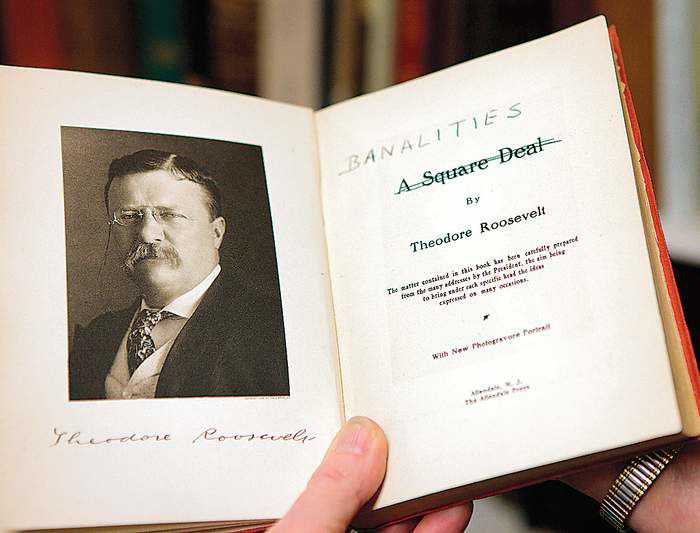Twain’s anger revealed after century in hiding
Published 5:00 am Saturday, July 10, 2010

- Mark Twain's personal copy of Theodore Roosevelt's book, “A Square Deal,” on which Twain wrote the word “banalities” over the title, in the University of California, Berkeley, archive on Friday.
Wry and cranky, droll and cantankerous — that’s the Mark Twain we think we know, thanks to reading “Huck Finn” and “Tom Sawyer” in high school. But in his unexpurgated autobiography, whose first volume is about to be published a century after his death, a very different Twain emerges, more pointedly political and willing to play the role of the angry prophet.
Whether anguishing over U.S. military interventions abroad or delivering jabs at Wall Street tycoons, this Twain is contemporary. Although the autobiography also contains its share of homespun tales, some of its observations about American life are so acerbic that his heirs and editors, as well as the writer himself, feared they would damage his reputation if not withheld.
“From the first, second, third and fourth editions all sound and sane expressions of opinion must be left out,” Twain instructed them in 1906. “There may be a market for that kind of wares a century from now. There is no hurry. Wait and see.”
Twain’s decree will be put to the test when the University of California Press publishes the first of three volumes of the 500,000-word “Autobiography of Mark Twain” in November. Twain dictated most of it to a stenographer in the four years before his death at 74 on April 21, 1910.
In popular culture today, Twain is “Colonel Sanders without the chicken, the avuncular man who told stories,” Ron Powers, the author of “Mark Twain: A Life,” said in a phone interview. “He’s been scrubbed and sanitized, and his passion has been kind of forgotten in all these long decades. But here he is talking to us, without any filtering at all, and what comes through that we have lost is precisely this fierce, unceasing passion.”
Versions of the autobiography have been published in 1924, 1940 and 1959. But the original editor, Albert Bigelow Paine, was a stickler for propriety, cutting entire sections he thought offensive.
“Paine was a Victorian editor,” said Robert Hirst, curator and general editor of the Mark Twain Papers and Project at the Bancroft Library at the University of California, Berkeley, where Twain’s papers are housed. “He has an exaggerated sense of how dangerous some of Twain’s statements are going to be, which can extend to anything: politics, sexuality, the Bible, anything that’s just a little too radical. This goes on for a good long time, a protective attitude that is very harmful.”
By the time all three volumes are available, Hirst said, “about half will not have ever been in print before.”



